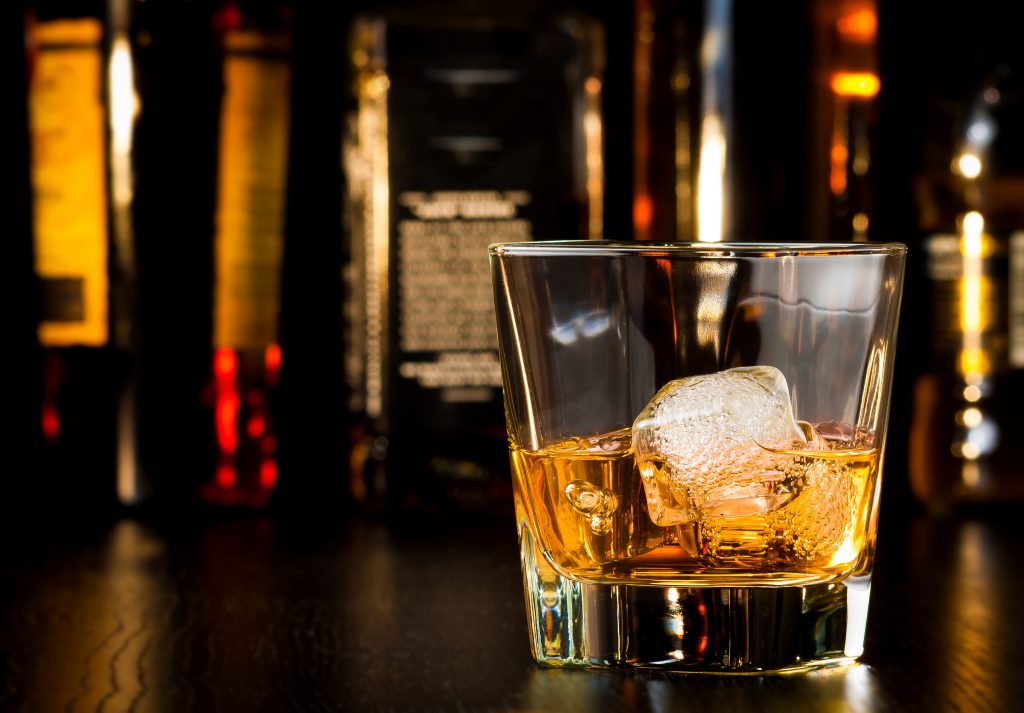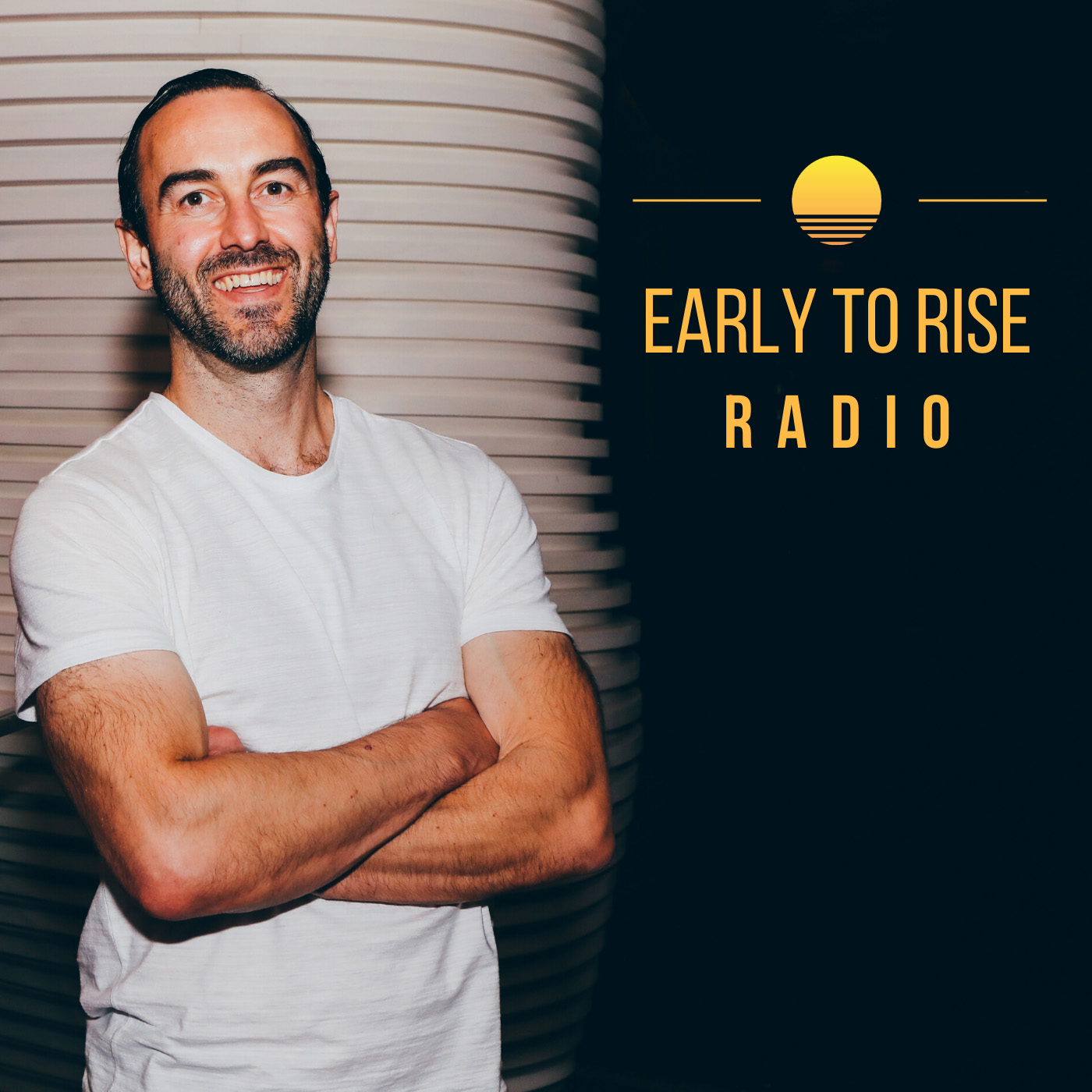026 – Caffeine, Alcohol, and Water: How much, When, Why, and Why not!

Podcast: Play in new window | Download
Have you ever wondered how high performing entrepreneurs and speakers like myself, Brendon Burchard, Carrie Wilkerson and Lewis Howes always have such great energy?
Do we have a secret? The answer is yes. It’s good habits and good nutrition.
Today we’re going to talk about two of the world’s favorite drugs: caffeine and alcohol. But before we get to them, we’re going to talk about the most important drink of your day which is water.
I first realized the power of water in high school.
- During my sophomore year, I felt tired, bloated, and really gross by the end of my day at high school.
- I started my coursework at the University of Arnold Schwarzenegger, meaning I started reading some muscle building magazines, and I discovered the importance of water.
- Now, today I drink about three liters of water and I drink most of it early in the day.
It helps me with fighting against fatigue, late afternoon hunger, loss of focus, constipation, all that stuff, and if you struggle with any of those things, try increasing your water intake early in the morning.
I start my day with a couple of cups of water. In addition to having a food journal, you should also keep a water journal. Find out:
- What amount of water makes you feel best
- What method of drinking water works for you
- Whether drinking cold water in the morning makes you feel better than drinking warm water with lemon
- You should also think about when you should stop drinking water late in the day so that you don’t wake up in the middle of night and have to pee
Now, one other tip: if you drink a lot of water really fast, then you’re going to end up peeing a lot quicker because the rate at which it comes out of you is equal to the rate at which it goes in you.
Let’s talk about the world’s most popular drug.
Caffeine is the world’s most widely consumed mood-altering drug. And it just happens to be found in coffee, tea, and other drinks.
Okay, so caffeine is a nervous system stimulant:
- It increases your arousal, your focus and even your creativity.
- It can prolong muscle endurance.
- It even helps you fight off headaches
But, caffeine can also:
- Increase your blood pressure, anxiety, tremors, and irritability
There’s a lot to consider here when choosing the right amount of caffeine for your high-performance outcome.
Research from the US Army found that consuming smaller more frequent doses of caffeine leads to a better long-term focus over the course of the day.
Having an Espresso is a whole lot better than having a Venti Starbucks at 8:00 in the morning.
How much caffeine is too much?
The Mayo Clinic suggests keeping your daily intake below 400 milligrams:
- Stevia Cola is about 35 milligrams.
- A 12 ounce can of Coca-Cola or Diet Coke is 50 milligrams
- Eight ounces of black tea is about 50 milligrams and green tea’s around the same
- 12 ounces of Folgers coffee in homebrew format is 80 milligrams
- A Red Bull 80 milligrams for a small can
- Monster Energy about 150 milligrams
- Starbucks two-ounce Espresso is 150 milligrams
- A 5-Hour Energy a whopping 200 milligrams
- A Dunkin’ Donuts medium coffee, 200 milligrams
- Crackheads Espresso Bean it’s 200 milligrams (per 28 pieces)
- A No-Doz is 200
- A Venti Starbucks has 400 milligrams of caffeine
Now going back to your caffeine intake, where do you draw the line?
That’s up to you … But, Men’s Health Magazine reported on a study that found regular consumption of over 300 milligrams of caffeine per day, leads to a 30% increase in anxiety and depression.
If you’re worried about your caffeine intake, figure out a way to cut it 10
Pour out a little bit of the coffee, or a little bit of Monster, and cut back slightly. Don’t go cold turkey test and track, and work your way down 10% every few days.
That way you’re going to find out what’s optimal for your performance.
Let’s talk about downers: alcohol and high performance
Alcohol is really a high-performance killer.
My anxiety attacks that I had in 2006 were a real kick in the butt, and I cut out alcohol.
Today I limit myself to one drink maximum per day. I often go weeks without drinking, and then I might have one drink three nights in a row.
Are there any positives aspects of alcohol within optimal, physical or mental performance? No. Why? Alcohol slows you down. Does it make you more creative? I don’t think Stephen King is less creative now that he’s sober than when he was when he was an alcoholic.
Let’s talk about hangovers.
I know how debilitating a hangover can be and the cloudiness that comes from even just a few drinks the night before. People always say, what’s the best cure for a hangover? The answer is: a time machine. In reality, there’s nothing but time that is going to cure your hangover.
How is your alcohol intake serving you? How is it making you a high performer?
You can ask yourself:
- Am I performing at the highest level I need to be at?
- Is alcohol part of my problem?
- Why don’t I cut it out?
Ask yourself those questions.
Alcohol also contains a lot of calories: a single beer or a glass of wine or a shot of alcohol is about 100 to 150. If you’re counting your calories, you have to figure out how important is this alcohol?
The real problem is what alcohol does to your judgment
Around pizza and other food temptations:
One beer after golf often leads to a second, maybe a third, and then that leads to a plate of nachos, which is probably 1500 calories, and the next thing you know, you’ve had 2,000 calories before five p.m. and you still have to go home and have dinner.
That is where most people end up in trouble, and that’s one of the biggest ways that alcohol can hold you back in life outside of the obvious mental performance.
A second sneaky way that alcohol decreases your performance is by preventing you from having the optimal recovery
Let’s talk about: Alcohol impairs your sleep cycle, it stops you from getting into the most restful sleep. Sure, alcohol might help you fall asleep, but it can also stop you from staying asleep, and research suggests that you stop all alcohol consumption three hours before bedtime.
Test and track your personal response. That’s where you figure out where to draw the line.
Let’s review the big lessons from our two podcasts about nutrition
If you missed my first one, make sure to go back to episode 20. For now, here are tips for high performance and nutrition:
- Eat whole natural foods.
- Avoid processed foods from a bag or a box.
- Find the meal frequency and diet style that suits you and your schedule.
- Drink two to three liters of water per day.
- Limit your caffeine intake to early in the day.
- Don’t drink alcohol within three hours of bedtime.
- You’re a unique snowflake. Your body has an individual response to different foods, to alcohol and caffeine. My best diet, my Craig Ballantyne best diet, is not your best diet. You need to find your own.
- Start a food journal. Use it for seven days. Do a water journal and do more of what works and less of what doesn’t.
- The opportunity for you to dramatically improve your physical and mental performance is right there at your fingertips. Do the work.
So that wraps up our discussion of high-performance nutrition here at Early To Rise Radio. I’d love to know what you think about these nutrition and high performance and exercise podcasts.
- Do they fit in?
- Do you want to hear more of them?
- Do you have any disagreements with my conclusions?
- Anything I left out?
- Do you feel like calling me names because I took away your wine?
Let it rip. Let me know what you think because more importantly, I want to know how it helped. Send your feedback on today’s show to support it: earlytorise.com, or to me on social media on Instagram or Twitter.
Cheers to your high performance.

